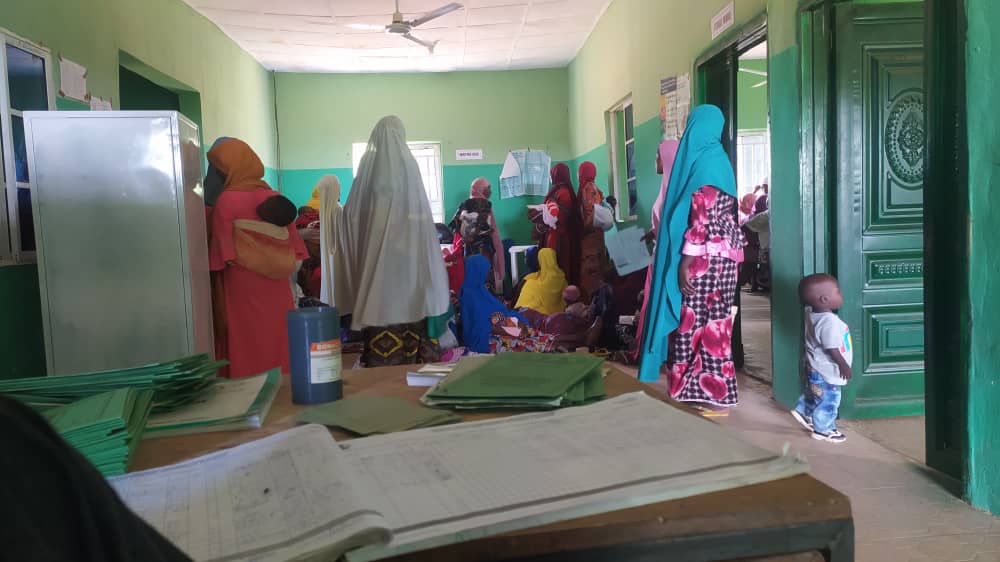…UNICEF says first 1,000 days most important in survival of a child
…pregnant women skip antenatal care over high transport in Bauchi

Apart from the activities of insurgents that have ravaged the North East region of the country where millions of people have been thrown into poverty, the recent subsidy removal is another strain that the people have to live with. But pregnant women and under two children have been identified as victims of the problem they know not.
Many families are wiggling in hunger. The condition has been exacerbated by the sudden announcement of an increase of fuel price. Many poor families now skip meals as their income has dwindled to almost zero. Pregnant women who require a balanced diet for child brain development go to bed hungry.
Health experts believe that the first 1,000 days in the life of a child determine survival and brain development. The North East has recorded a high rate of stunting, severe acute malnutrition and wasting as caused by poverty.
For Amina Mustapha, who took her 15 months malnourished daughter to the Primary Health Care in Duguri, Alkaleri Council of Bauchi to get the RUTF –(Ready-to-Use Therapeutic Food) a life-saving essential supply item that treats severe wasting in children under 5 years old was told that the food was out of stock. She looked worried, the thought of a fruitless journey overwhelmed her and started contemplating the next visit.
Yalo Community is about 25 kms from Duguri where she boarded a truck conveying goods to market. “I will need N1,000 for Okada back home or wait till evening when people will be returning from the market.”
Her daughter was ostensibly hungry and crying but Amina was helpless. “I will trek because my baby is hungry and I don’t have any money on me to feed her.”
A staff of the clinic, Yahaya Duguri said that most of the patients –particularly pregnant women and nursing mothers are skipping their antenatal care and immunisation due to transport fare and economic hardship. “Their number has reduced compared to previous attendance we normally record. Most of them are complaining about a hike in transportation fare. You know most of them are from neighbouring communities, they have to hire a bike.”
The situation is not different at Yelwa Domiciliary PHCC, Bauchi metropolis, The Guardian observed that the number of attendance of pregnant women and nursing mothers has sharply reduced. One of the auxiliary health care providers, Umar Mohammed said that “before, as early as 5:00am you will see so many of them here to pick numbers because of the crowd. Sometimes we attend to more than 300 women. This is about 9:30 am but we have less than 150 of them.”
According to him, many of the women were lamenting the high cost of transporting themselves to the clinic.
Hanatul Luka, was seen at Bayara General Hospital with her antenatal care cards in an argument with a commercial motorcyclist over the sudden increase of the fare. She said: “Things are really hard, I came here for antenatal with my last N500. I only drank an ordinary pap this morning. Now, this N500 won’t take me back. This is a distance that I used to spend only N250. How do I come next time for the next antenatal?”.
In Gombe, The Guardian observed the Kumbiya Kumbiya PHC within the State Capital, malnourished children were facing a tough time as the In-charge of the facility said that the RUTF supplement was out of stock for more than 9 weeks, a situation that posed danger to the lives of the malnourished kids.
In 2019, a nutrition specialist with United Nations Children’s Fund (UNICEF), Bauchi Field Office, Dr Jackson Martins, said that Bauchi State has 28.2 percent of acute malnutrition and a high stunting rate of 45.6 percent, against the National indices of 19.9% and 32.0% prevalence of acute malnutrition and stunting.
It is said that there is one case of Severe Acute Malnutrition (SAM) in every six children in North-East emergency states. And one case of SAM is reported in every seven children in nine northern non-emergency states compared to one (SAM) in 77 children in the remaining part of the country, according to the Acting Executive Secretary of Gombe State Primary Health Care Development Agency, Dr. Maryam Abubakar.
Maryam, who spoke at a-two-day stakeholders dialogue recently in Gombe on “first 1,000 days of a child’s life” organised by the United Nations Children’s Fund (UNICEF), said that the region records more cases of child stunting, underweight and wasting.
She said that 32.0 percent of children in Nigeria are stunted while 42.8 percent are stunted. According to her, 1.0 percent cases of Severe Acute Malnutrition in the country and the region account for 1.5 percent. The region also has 44 percent against the 40 percent of children lacking vitamin-A.
The speakers argued that poverty is driving more mothers and children to health risks.
Also, Director of Planning, Bauchi State Primary Health Care Development Agency, Dr. Jibrin Mohammed, said despite the state of emergency declared by the state the statistics are not in favour of the state, saying that there is a need to urgently address the situation.
While ventilating more on the situation of mother and child care, a Health expert from UNICEF, Dr. Emmanuel Egbedo said that 75 percent of newborn deaths occur at the first week of birth while 50 percent of maternal deaths also occur at 28 weeks. He added that a child who completes all immunisations and proper child care is likely to survive the first 1,000 days.
He said that the period shown to have the greatest potential for positive impact on long term health outcomes for both mother and child. “Window of greatest contact with the health system for women mothers, newborns and children. Period of greatest health risk and vulnerability for adverse health for women, mothers, newborns and children.
“Great demand and challenge to the health system. Critical determinant of the survive, thrive, and transform agenda. Shape human and economic development and growth other SDGs),” he said.
[ad unit=2]






